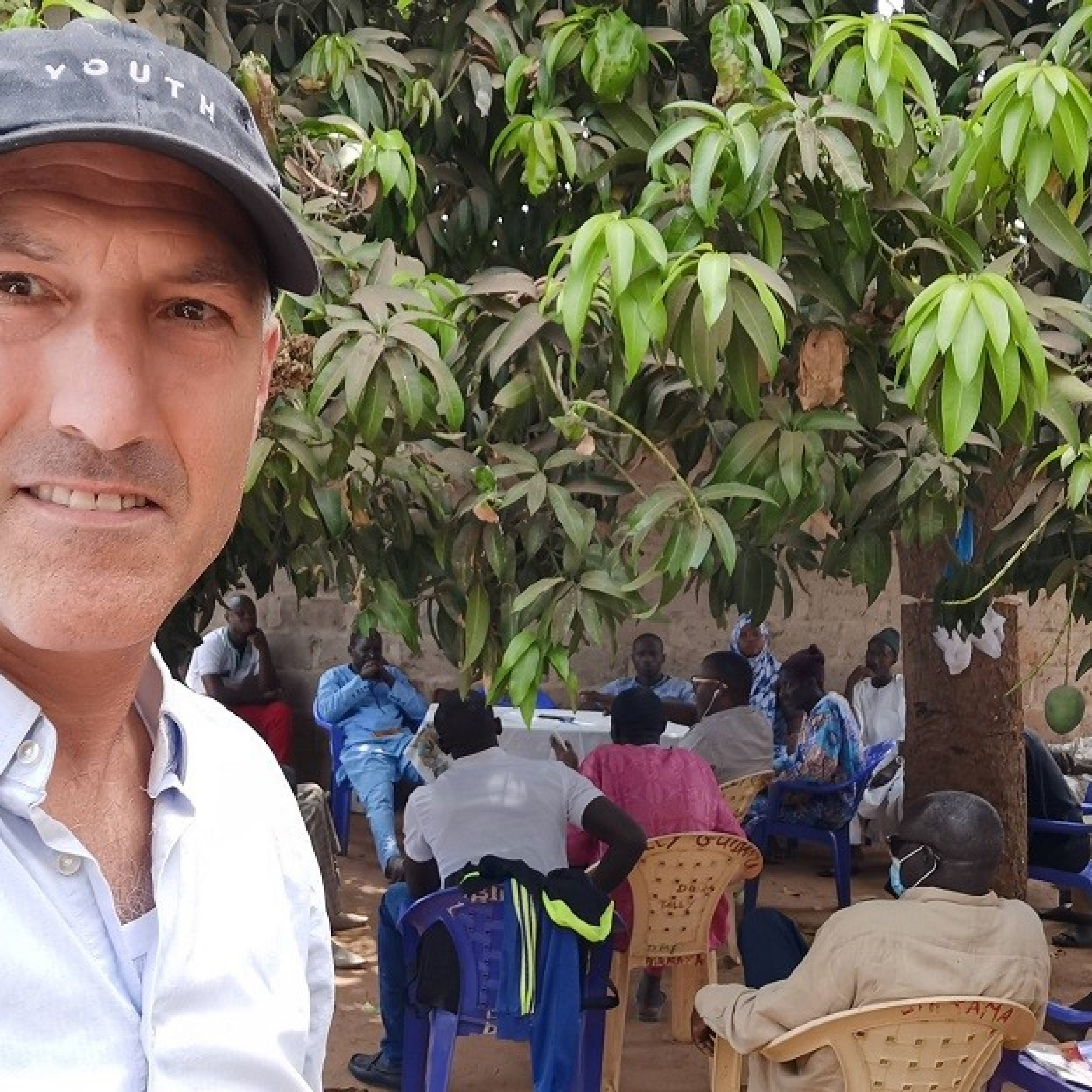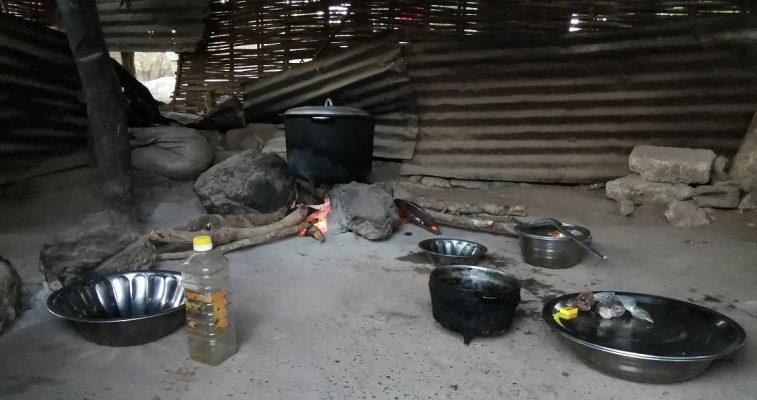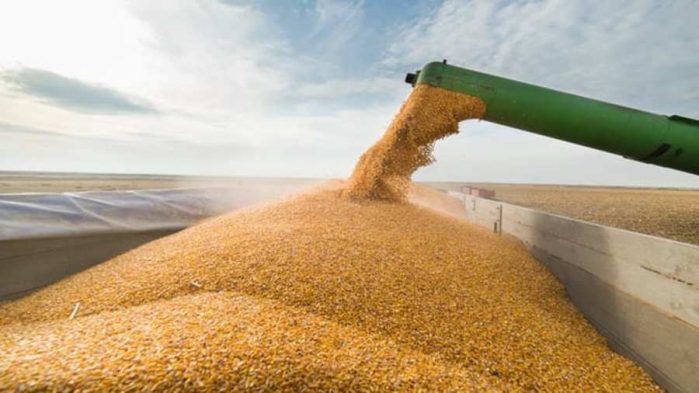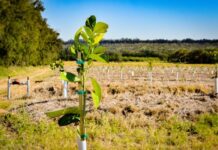By : Dr. Nimrod Israely – Founder and CEO – Biofeed Ltd.
Remarks, the topic in this article is general and concerns all emerging economies.
INVESTMENTS AND DOUBTS
In the coming Business Summit (see above), investors will look for investment opportunities to invest in and would ask themselves one question – “Will my investment benefit me and the African agro-sector?”
Looking at the past and the present investment status, the investor, should be apprehensive about the expected answer.
So far, Africa has successfully attracted investments in tens/hundreds of $ Billions. But do those huge investments pay off and serve their goal, as the investor would like?
Is there a business model that “proved” itself for producing the best results for stakeholders, including the farmers, in the agro-sector of Africa and emerging markets in general? This is a reminder that most African farmers live in poverty, i.e., less than <1.9 $/day! Yet, how many investments in agriculture do you know that, in practice, doubled farmers’ income and on the way changed their life?
SEARCHING FOR (SUSTAINABLE) INVESTMENT MODEL
As an investor, I spent years and years looking to find answers to the above intriguing questions.
Firstly, when visiting Africa, I saw what all savvy salesmen saw before me; the endless opportunities to sell agro-solutions.
I asked myself, “How well will my knowhow, ideas, and solutions will serve the market and the farmers?” This was when my doubts arose, and I was not sure at all about the answer. Meaning, I had a feeling that the above approach is not going to bring the expected and desired results and change.
I was ruthless with myself and asked many more critical questions, such as;
What does the market want?
What does the market need?
What is the right way to invest in Africa, to create sustainable growth? Then, restlessly, I began looking for answers.
I knew that no sustainable investment or continuous progress is possible without “a proper operational investment business model.”
Looking around, I could see Africa immersed up to the neck in a sea of investments – most of those are inefficient and do not fulfill their purpose. Most importantly, as soon as the money ends, those investments will bring despair and destruction instead of bringing prosperity. Meaning, in the African reality, they are not creating sustainable growth.
TYPICAL REQUESTS
When I meet people related to the agro-industry, and in particular to the mango sector, I ask them, “How can I assist you in achieving your goals?”
This question, and its many answers, helps me better understand how the other party perceives the situation and the problems they and we are facing. Here are descriptions of four such encounters/meeting and the answers I received –
1. A local representative, in Africa, of a Western government –
I, “What can I do to help your organization?”
Him, “I would appreciate it if you could fund a well excavation.”
2. Representatives of an African country Ministry of Agriculture –
I, “What can I do to help?”
They, “Sell your goods (fruit fly solution) at a lower price, work with smallholders, and export through our exporters.”
3. Representatives of a large mango growers’ organization from India, at the end of a professional tour in Israel –
I, “You traveled around Israel and saw everything that can be related to mango. What is the one thing you would like to have in India?”
They, can’t agree on one thing and provide diverse topics, “packinghouse, irrigation, cold chain, logistics, varieties, nurseries, etc.“
4. African Mango growers –
I, “What do you want the most?”
They, provide many answers, “A fence around the orchards (to protect from stray cattle), an irrigation system, professional training, a solution for the red ants, taking care of fruit flies, logistics, harvest, etc.”
The above examples represent what so many are asking/offering, including charity organizations, NGOs, governmental organizations, etc.
Are you familiar with such wishes? What would you ask from me if you had a chance? Last and most important, what do you see is in common for the above type of wishes?
A hint; in all the meetings, the main subject of the conversation was the mango growers, whose income ranged from $ 100 to $ 1,000 per hectare.
Note that the income of a professional farmer where agriculture is advanced is $30,000 to $ 60,000 per hectare.
THE COMMON DENOMINATOR
The above wishes/requests have several things in common.
1. They wished for technological or technological-related solutions.
2. Their wishes are out of range for them to buy or even to sustain.
3. They lack the supporting infrastructure to exploit what they asked for in full.
4. No one came suggested a way of how to finance the costs involved.
5. All expect to get their “wish” for free.
For decades, mango growers are asking more or less for the same things.
For decades the World Bank, NGOs, governmental organizations, charity, and funds finance much of those wishes, coming from experts and farmers alike.
For years, be it in Africa or India, or be it wherever I go, I see state-of-the-art packinghouses standing empty, dysfunctional wells and expensive irrigation systems, demonstrations farms standing still with none of the farmers adopting any demonstrated solutions. This is a silent and painful reminder of yet many failed investments by someone other than the farmer.
Not surprisingly, in all cases, the farmer’s socio-economic status didn’t improve following the investments. They remained in poverty.
Do you know what I am talking about? Are you aware of past investments in the mango industry or any other agro-industry that failed?
Hence, we can ask a complementary question;
Where and when you last saw, in sub-Sahara Africa, an agricultural project that is still functioning a few years after funding has ended?
In how many projects farmers increased their income significantly and in a sustainable way after the funding ended?
Furthermore, IF such a project exists (where farmers significantly increased their income), how many farmers enjoyed it?
In fact, there are wells scattered around Africa, in the value of hundreds of millions of $ that are dysfunctional, and there are other agricultural projects where the cumulative investment is tens of billions of $ that have failed. Those investors didn’t manage to reach their long-term goals, and disappointingly, they didn’t improve farmers’ lives.
A TEMPTING YET ALARMING OFFER
It was about four years ago. A World Bank approached me, they asked for my help with a well-funded project in India to protect their mango production from fruit flies.
This project was pushed and supported by an irrigation company trying to promote its products. It was a genuinely state-of-the-art, high-density mangoes orchard equipped with dripping irrigation.
The project offered farmers to fully finance their transition from traditional low-production orchards to intensive, irrigated, high-production orchards.
They had one fundamental problem; regardless of the production per hectare, all orchards suffered from over 50% fruit loss due to fruit flies. Business-wise, the more they were investing, the more they were losing.
I was happy to help out and spend good several weeks in the south of India with the projects’ manager.
The project pilot was successful. No infestation. I was happy; the farmers were satisfied, the project manager was delighted.
Then I inquired about the next season and the business-wise feasibility of the project. Later, I discovered that the mango market is for the juice industry, where the price per kg is meager.
When I made my calculations, I understood that none of these orchards, traditional or advance, is economically sustainable without the World Bank’s continuous support.
Now I understood why the farmers were reluctant to receive the “fully financed project support.” I observed the same pattern in Africa and many other farming projects I have encountered in an emerging economy.
I later heard from a representative of the World Bank that almost all projects are short-term and have a limited life period – once the financing period is over… the projects cease to exist. They are not sustainable.
To me, this is sowing destruction, distrust, and despair. An actual socio-economic disaster and a colossal failure of the overall concept of advancing the agro-sector by pushing more and more investments.
Once again, we ask; why those investments are not bringing the expected results?
Is this the best we can hope for in Africa’s future?
Is it possible that good intentions and a lot of money are not self-sufficient to fight poverty and advance Africa’s farmers into the 21st Century? What is the alternative approach we should define and implement to achieve our goals?
WHY ARE THESE THE “WISHES”?
The farmers, experts, politicians, donating/investing organizations are all asking and wishing for the technologies and knowhow that experts and leading companies are using and advising farmers to use in the advanced economies.
A mango expert in an advanced economy assumes that if the farmers in emerging economies will emulate and follow what farmers in his country are doing, eventually they will get the same results, or at least better results than they have now.
Hence, he advises them to use and apply the same technologies used in his country. To prove his point, he is presenting extraordinary professional results in his country.
Now the equation is explicit; to be as successful as the farmers in countries where the agro-industry is advanced, we need to emulate exactly what they do.
This, emulation of actions and behaviors, is practically impossible for farmers who live in poverty experiencing different business and cultural environments and even different problems (e.g., different fruit flies).
When the same message repeats itself over and over again, you start hearing it echoing from experts, politicians, farmers, and all support systems in the developed and the less developed economies… and you begin to believe that THIS is the only way forward.
You may say, “Wait, but they do it for decades, investing billions, and nothing changes! If it was not producing the expected results then, why to continue doing it, and why for so many years?” Could it be that “the king is naked?”
What is your opinion? Why billions of $ are still invested in attempts to help African farmers even after decades of poor results and little progress?
BRIDGING THE DISSONANCE
If nothing works as expected, with no change on the horizon, how come we continue acting, doing, and executing the same investment approach?
I first received an answer to that question about 30 years ago from a crop protection expert working for a big agrochemical firm. This is what he said to me;
“We gave the African farmers tractors, sprayers, and training. Everything was working well as long as our technical expert was there. But as soon as he was back, the tractor and the sprayers stopped working. That was the end of many years of hard work and significant investment on our side.
These farmers are not qualified to do the professional work we do. If we are not there, they quickly return to their old habits and work by hand or with animals.”
Now we have the answer, in simple words, the expert is saying to me;
It is a fact that you are using our technology and knowhow, and it is a fact that you get satisfactory results.
Now you see, the African farmers, on their own, are incompetent, and therefore they don’t get good results.
What do you think of the expert opinion?
Now we all know; the technology, the knowhow, and the business models are outstanding. The blame is on the African/Asian/Latin American farmers who are incompetent and hence fail.
It is always easier and painless to blame the other.
WHY IS THIS ATTITUDE PROBLEMATIC?
With the above answer and conclusion, the fault is the entire farmers, and the experts, technologies, and approaches are fine with nothing to change.
Under such assumptions, you see two options:
1. “To fix the farmers” until they can adequately work with your advanced technologies and knowhow.
2. To develop simpler low-cost technologies that even African/Asian/Latin American farmers can buy and quickly master.
Unfortunately, this is precisely where the problem lay.
Reality proved that trying to “fix the farmers” or supplying simple and low-cost products still brings disappointing results.
I see no need to “fix the farmers” or downgrade the technologies.
I am meeting those farmers very often. I have high technical skills, and so they do. So what and where is the problem? Why African/Asian/Latin American agro-industry lag so far behind?

NO BAD GUYS IN THIS STORY
The reason is a substantial continuous fundamental problem of how we approach that problem and humanitarian challenge.
There are no good or bad people in this story, just a wrong approach resulting from “a genuine wish to do good”. But sometimes “wishing to do good” alone is insufficient…
As you will see below, good people with good intentions from all nations, colors, professions, titles, sexes are equally involved in this ongoing tragic failure to get those farmers out of poverty.
DESCRIPTION OF THE PROBLEM AND THE ROOT PROBLEM
To locate the Problems and the Root Problem, we will start by understating the forces and the players in this arena. To simplify things, we will continue focusing on the mango industry.
Agreed objective: Improving the economic state of mango growers in Africa.
Involved organizations: governments, NGOs, philanthropists, World Bank, UN, commercial companies, packinghouses, fruit traders, etc.
While it is clear that farmers are looking for help and are ready to accept it, it is less obvious what the goal of each of the “involved organizations” is, hence its resulting action.
Below are the Goals, the implied Actions, and what may be considered Success for each type of group.
TYPE OF GROUPS –
1. PROVIDERS (goods, services, funding, and knowledge) –
Goals: To increase the profit.
Actions: Selling products and services to farmers.
Considered Success: Growing profit with zero exposure to risk.
Note that companies employ “experts” who are always sure that their technologies and knowhow are the best and the most suitable for the job. Meaning any problem resulting from using the product or service is the fault and the farmer’s responsibility.
2. VALUE-CHAIN (Fruit traders, Packinghouses, Exporters, Importers) –
Goals: To extract from the farmer’s orchards as many fruits as possible and market/sell to the next party’s value chain.
Actions: Buying fruits from the farmer or the previous link in the value chain.
Considered Success: Buying many fruits with zero exposure to risk to the preceding party in the value chain, including the farmer. When possible, paying as little and as late as possible, and usually after they get paid for the produce.
3. GOVERNMENTS (in Emerging Economies)–
Goal: Political motivations.
Actions: To show that they are acting in favor of the farmers. They would work in line with the experts’ advice.
Considered Success: Re-elected.
4. NON-PROFIT INVESTORS (NGOs, philanthropists, World Bank, UN) –
Goal: Humanitarian and political motivations.
Actions: Financial allocation that allows providing farmers with products/technologies, services, and knowledge.
Considered Success: Need to show the money was fully used on matters related to the allocations. They can’t invest what was not allocated in advance.
Note, these organizations assume that they will not see any of the money in return, and hence they take zero pre-calculated risks. Often, they don’t get their money back and don’t achieve their goals.
We can see that ALL the above “players” are never affected by the actual situation of farmers and the degree of socio-economic progress made during their service.
They are not exposed in any way to risks related to the farmers’ state.
What do you see is in common for the four types of groups described above?
It is okay and normal if you still don’t see it. Because from your point of view, the four groups; Providers, Value-Chain, Governments, and Non-profit investors, are very different and even different within each sub-group.
TO BE CONTINUED next week, PART 2, where I will discuss the answers to the many questions here above and how we can easily create a new improved reality.
At the Trade With Africa Business Summit 2021, I will present the novel approach, explaining the root problems and the real solutions. Click here for the full agenda and registration.
Please, if you found value in this article, it would mean a lot to me if you send me a comment and share it with your friends.
Subscribe here for access to exclusive content – SUBSCRIBE









